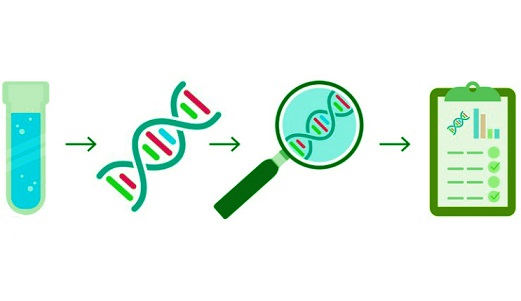Nikhil Prasad Fact checked by:Thailand Medical News Team Oct 30, 2024 5 months, 3 weeks, 4 days, 15 hours, 26 minutes ago
Medical-News: Concern Over SARS-CoV-2 Sequences on GenBank
A recent study raises concerns about the reliability of some SARS-CoV-2 genomic sequences uploaded to GenBank, a crucial database managed by the U.S. National Center for Biotechnology Information (NCBI). Professor Xuhua Xia, from the University of Ottawa's Department of Biology and Ottawa Institute of Systems Biology, has scrutinized these sequences, highlighting discrepancies that may lead to misleading conclusions in public health and bioinformatics research.
 Scientist Warns of Unreliable SARS-CoV-2 Genomic Sequences in GenBank
Scientist Warns of Unreliable SARS-CoV-2 Genomic Sequences in GenBank
GenBank is widely used by scientists worldwide as a reliable resource for studying various viruses, including SARS-CoV-2, the virus responsible for COVID-19. The database plays a significant role in tracking viral evolution and aiding in vaccine development. But recent findings suggest that some sequences, especially those uploaded after 2020, might not be entirely accurate. This
Medical News report discusses why researchers believe some SARS-CoV-2 genomes in GenBank are likely inauthentic and the potential implications for science and public health.
What the Study Found: Identifying "Impossible" SARS-CoV-2 Genomes
Professor Xia's analysis uncovered a surprising pattern: a significant number of SARS-CoV-2 genomic sequences uploaded to GenBank are exact replicas of the original SARS-CoV-2 genome collected in Wuhan, China, back in December 2019. These sequences, collected from 2021 to 2024, are identical to the original reference genome, raising doubts about their authenticity. With viruses evolving continuously, it is improbable - nearly impossible - for SARS-CoV-2 genomes sampled years after the initial outbreak to remain unchanged.
For instance, the study calculated that a genome identical to the Wuhan reference genome but collected as recently as January 2024 would have a probability near zero of existing naturally, given SARS-CoV-2’s known mutation rates. In simpler terms, the chance of finding a sample today that perfectly matches the 2019 virus is incredibly low. This discrepancy casts doubt on the quality control of the GenBank submissions and suggests that certain sequences may not accurately represent naturally evolving SARS-CoV-2 strains.
How Inauthentic Data Impacts Research
When inauthentic or erroneous data is used, it affects more than just isolated studies. Bioinformatics research relies heavily on accurate data to trace viral lineage, study mutations, and estimate the virus's evolutionary rate. Professor Xia's findings indicate that these “impossible” SARS-CoV-2 genomes in GenBank can severely skew such analyses.
One major concern is the impact on research into viral mutation rates and common ancestry. By including these improbable sequences in datasets, scientists might underestimate the speed at which the virus is evolving. This could lead to inaccurate conclusions about how quickl
y SARS-CoV-2 adapts to new conditions, such as vaccines or other antiviral pressures. Accurate mutation rates are essential to predict the virus’s future spread and guide public health responses.
Altered Collection Times and Errors in Data Annotation
Alongside identifying improbable genomic sequences, Professor Xia’s team observed several inconsistencies in the collection dates of SARS-CoV-2 samples within GenBank. Some sequences appeared to have altered collection dates without any record of modification, which can confuse researchers relying on GenBank's timelines for evolutionary studies.
For instance, one sequence initially listed as collected in early 2020 was later updated to show a 2021 collection date. Another example highlighted in the study involved samples from Myanmar and the United States, where collection dates were adjusted by up to a year. The lack of clear documentation surrounding these changes raises questions about transparency in GenBank’s data management.
In addition, the study points out that certain sequences derived from animals, like minks, were incorrectly annotated in GenBank. For example, sequences labeled as stemming from European minks (Mustela lutreola) were in reality from American minks (Neovison vison). The study team contacted submitters who assured that corrections would be made, but these errors remained unaddressed as of August 2024.
Why Stringent Quality Control is Urgent
In his paper, Professor Xia advocates for enhanced quality control protocols within GenBank to address these inaccuracies. As the database continues to grow with millions of genomic sequences, including more SARS-CoV-2 strains, the need for reliable data is critical for public health and scientific research.
The study suggests implementing additional verification processes, such as requiring submitters to provide detailed descriptions and proof of their samples' origins. By ensuring that each genome undergoes thorough validation before being publicly accessible, GenBank could improve the reliability of its data and prevent these kinds of issues from occurring in the future.
Looking Ahead: Potential Solutions and Recommendations
The findings from Professor Xia’s study underscore the need for GenBank to establish stricter data validation procedures. Other viral databases like GISAID, a global repository for viral genomic data, may offer some solutions for improving GenBank’s protocols. Although GISAID has faced similar issues with data quality, it enforces certain policies that promote transparency and incentivize data accuracy. Adopting similar measures could help GenBank increase its data integrity.
In conclusion, Professor Xia’s research reveals critical insights into the limitations of current data management practices in one of the world’s most relied-upon biological databases. Addressing these issues will not only safeguard the quality of SARS-CoV-2 research but also benefit future studies on viral evolution, public health, and pandemic preparedness.
The study findings were published in the peer-reviewed journal: Microorganisms.
https://www.mdpi.com/2076-2607/12/11/2187
For the latest on Genomic Sequencing, keep on logging to Thailand
Medical News.
Read Also:
https://www.thailandmedical.news/news/breaking-covid-19-news-data-from-gisaid-could-be-unreliable-and-manipulated-platform-constantly-restricting-or-limiting-access-to-researchers
https://www.thailandmedical.news/news/breaking-china-no-longer-updates-sars-cov-2-genomic-sequences-on-international-gisaid-platform-will-only-use-its-own-genbase-platform
